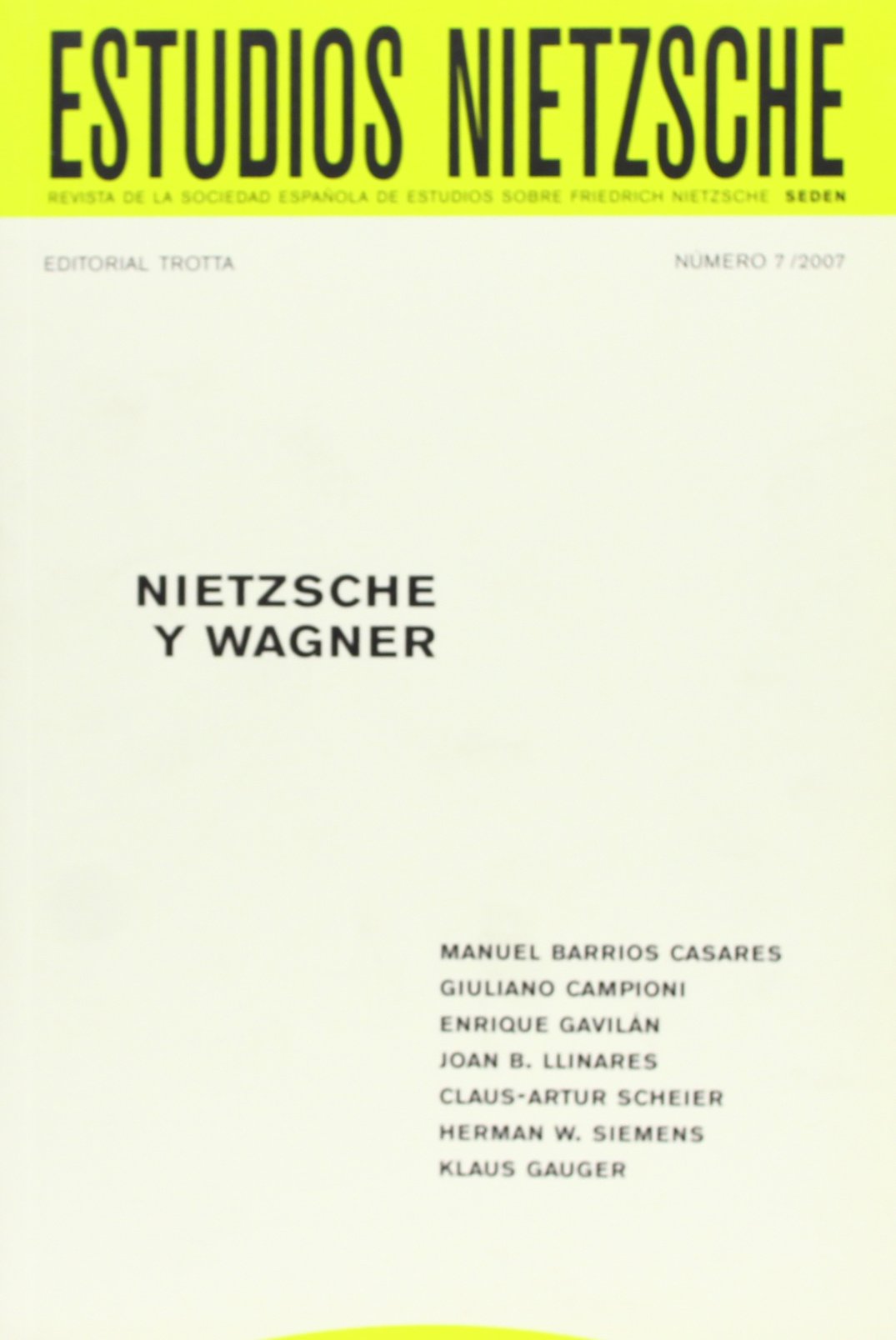Nietzsche contra Wagner: ¿Música como simulación?
DOI:
https://doi.org/10.24310/EstudiosNIETen.vi7.10213Keywords:
art, music, aestheticsAbstract
Wagner’s theories on music greatly influenced Nietzsche’s aesthetics. Not only when he was a follower of these theories, in his Wagnerian period, but also in his maturity, when he developed his radical critique of Wagner and of the aesthetic ideal that he represented. For good and for ill, Wagner taught Nietzsche a new conception of music, and of art in general, in which both are ultimately based on «gesture». This paper looks at Nietzsche’s intellectual journey, referring widely to the writings of Wagner, to corroborate this thesis.
Downloads
Metrics
References
Diego Sánchez Meca, Diego, en: «El adversario interior», Estudios Nietzsche, I (2001), pp. 119-144.
Scheier, Claus-Artur, Ästhetik der Simulation. Formen des Produktionsdenkens im 19. Jahrhundert, Hamburg, 2000.
Downloads
Published
How to Cite
Issue
Section
License
As of issue 21 (2021) this journal is published only in open access (diamond route).
From that number 21, like the previous numbers published in NIETZSCHE STUDIES, they are subject to the Creative Commons Acknowledgment-NoComercia-ShareIgual 4.0 license, the full text of which can be consulted at <http://creativecommons.org/licenses/by-nc-sa/4.0 >
It is the responsibility of the authors to obtain the necessary permissions of the images that are subject to copyright.
This work is licensed under a Creative Commons Attribution-NonCommercial-ShareAlike 4.0 International License.
Copyright generates two different rights: moral rights and patrimonial rights that EJFB recognizes and respects. Moral rights are those relating to the recognition of the authorship. They are rights of a personal nature that are perpetual, inalienable, unseizable and imprescriptible as consequence of the indivisible union of the author and his/her work.
Patrimonial rights are those that can be derived from the reproduction, distribution, adaptation or communication of the work, among others.







11.png)
